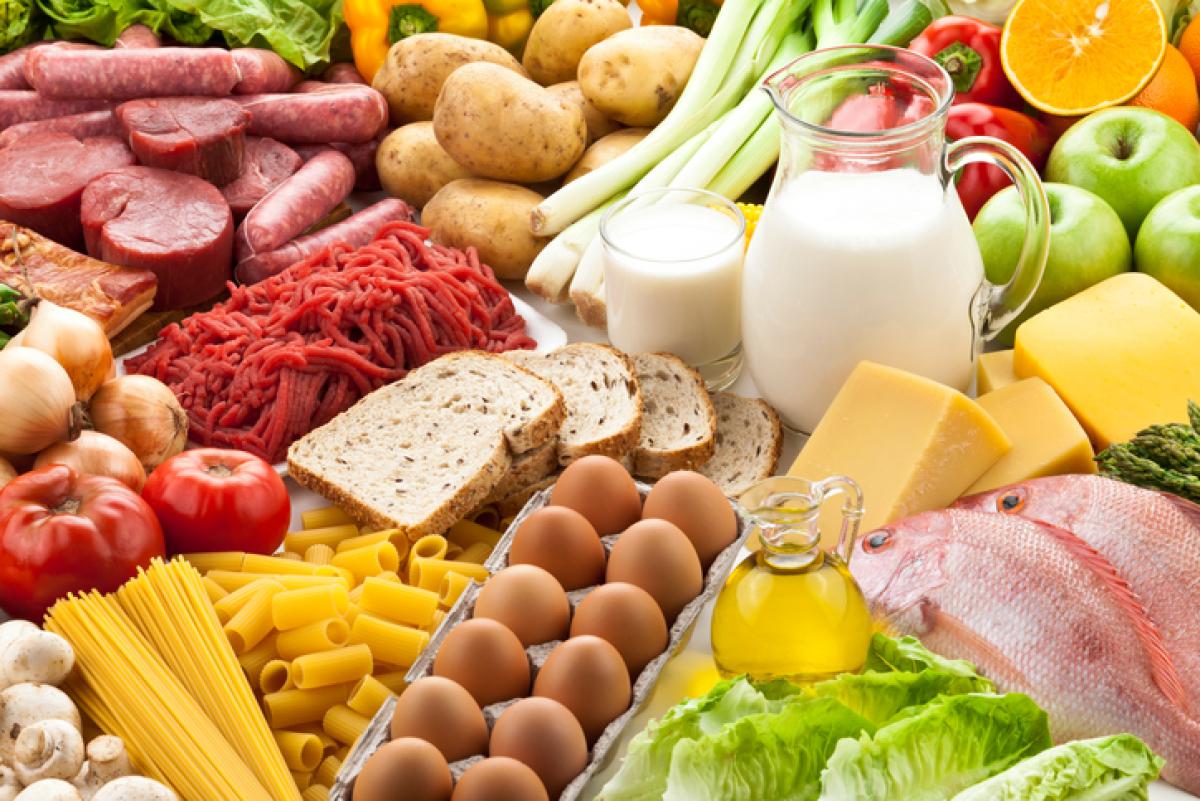What to eat if you don't want to regain weight you lost

When it comes to losing weight, sometimes even the thought of attempting this arduous task may seem overwhelming. New diet fads are bombarding us constantly and everyone seems to be an expert: more protein, less carbs, watch your sugars, stay away from fats. The list goes on and on.
So what’s the best way to lose weight? The answer is not quite as simple as you think. “That’s because weight maintenance is just as important as weight loss,” says Namita Gupta, MD, endocrinologist at Nebraska Medicine’s Bariatrics Center. “If you are looking at weight loss only, it’s your total caloric intake that matters most. No matter what you eat, if your total calories are the same, your weight loss will be the same.
“However, when it comes to your ability to maintain that weight loss, the type of calories you put in your mouth does appear to make a difference in your ability to sustain your weight loss. Studies show that a diet high in protein results in the least amount of weight regain. And of course, calories from healthy foods are going to better for your general health and wellness.”
A high protein diet is important for several reasons.
First, protein keeps you full longer and feeling more satisfied, says Dr. Gupta. Unlike carbs and sugars, it provides a more sustained feeling of satiety and is not going to cause your blood sugar to spike. Protein also helps promote lean mass. Eating more protein will help you lose less muscle tissue and more fat.
Exercise is also an important part of this formula.
Adding regular exercise to your routine will help you build and maintain muscle mass, which will also aid in increasing your metabolism. Protein also assists in muscle recovery and works in tandem with the benefits you get from exercise to help preserve that muscle. No matter how you get there, exercise is a key component in any weight loss program, says Dr. Gupta. We recommend striving for 150 minutes each week. Our exercise specialists and dietitians at the Bariatrics Center will work closely with you to develop a plan that works for you.”
Promoting a lean body mass and reducing fat mass helps lower your risk of diabetes, high blood pressure and heart disease, notes Dr. Gupta. The type of protein you consume is also important. Choose lean proteins like chicken, lean meats, fish, eggs and low-fat dairy products like milk, yogurt and cheese. If you are using protein shakes or bars, look for products that contain whey isolate protein for maximum protein benefit.
While everyone’s needs are different, the average person needs about .4 grams of protein per one pound of body weight. However, your protein needs increase after you reach 40. That’s when most of us experience age-related muscle loss at approximately 3 percent per year. Increasing your lean muscle mass while decreasing your percentage of body fat can help you reverse this trend.
So what about carbs–should they be avoided?
“Carbs are your body’s primary energy source and should never be completely eliminated from your diet,” says Shawn Zajicek, registered dietitian at the Bariatrics Center. “For years, carbohydrates have received a bad rap. But it is important to remember, that not all carbs are alike.” Carbs that one should limit come from foods like white breads, pasta and rice, crackers, chips and cookies. They are processed by your body quickly and cause large spikes in your blood sugar. When your blood sugar drops, you feel hungry again.
“Carbohydrates can get in the way of weight loss because they are so easy to eat in excess,” says Zajicek. The next time you reach for a carb, focus on choosing a more nutritious carb choice such as whole grains and legumes, fruits and vegetables. Their bulk and fiber takes more time for your body to break down and use, she explains. This provides you with a more even amount of energy and helps you feel full on fewer calories.
Limit excess sugar.
Excess sugar is also a huge problem in the typical American diet, notes Rebecca Jardon, registered dietitian at the Bariatrics Center. According to the USDA Dietary Guidelines for Americans, it is advised to limit your total daily caloric intake from added sugars to 10 percent or less of your total calories. For a 2000-calorie diet, that’s equivalent to 50 grams or 12 teaspoons of sugar. The average American gets closer to 17 percent of their calories from added sugars. That’s not hard to believe when you consider that one 12-ounce can of regular soda has about 10 teaspoons of sugar.
Alternative sugars are a good option to consider, says Jardon. The Food and Drug Administration has approved seven sweeteners including aspartame, saccharin, sucralose, acesulfame, advantame, neotame and stevia. While there has been much concern about the health risks of these products, there has been no clear evidence to link any of these with increased cancer risk, she says. If you have concern regarding the safety of artificial sweeteners, consider stevia, which is a plant-based sweetener that comes from the stevia plant. Stevia has no calories and is 200 times sweeter than sugar in the same concentration.
The Bariatrics Center at Nebraska Medicine is the most comprehensive weight management program in the region for medical and surgical weight loss. Patients are supported by a multidisciplinary group of highly trained specialists including bariatric surgeons, physician assistants, endocrinologists, dietitians, psychologists, exercise physiologist, clinical nurse case managers and insurance coordinators.
“Our team offers dedicated support through your entire weight loss journey and transition to lifelong healthy living,” says Dr. Gupta.


